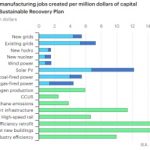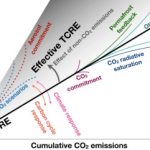We already have the technology to allow households to monitor and control their energy usage so they can run individual appliances when the energy is cheapest and greenest. It just needs to be tested and then deployed at scale. Luca Arfini, writing for ESCI, describes the EU-funded ReDREAM project where over 700 people in four countries have had the monitoring installed in their homes, and been given the mobile app to control their usage. … [Read more...]
Buildings Efficiency: cars have an “eco mode” button. Why not our homes?
Households need the right tools to be able to take control of their real-time energy consumption, says Maximilian Auffhammer at the Energy Institute at Haas. Smart meters are just too crude. They don’t tell you how much energy individual devices are using – fridges, ovens, heaters, EV chargers, TVs, lightbulbs, toasters, etc. You have to work it out yourself by switching devices on and off and seeing the difference. Auffhammer argues if you price … [Read more...]
New research ranks the 12 best ways to cut car use in cities
Behaviour change is as an important part of our transition journey as the clean energy revolution. Kimberly Nicholas at Lund University summarises research that has gathered together nearly 800 peer-reviewed reports and case studies from across Europe that analyse ways of reducing car use. One main challenge is to quantify the benefits so policy-makers and citizens can make evidence-based decisions on how to re-imagine city mobility. Nicholas … [Read more...]
IPCC Report on Adaptation: a rapidly closing policy window for climate change action
We do not know how successful we will be at cutting emissions. So “adaptation” is how we change our behaviour, economies, infrastructure and planning to cope with the consequences of climate change. The IPCC’s 6th and latest report looks at the scientific evidence of climate risk and the adaptation solutions being pursued around the world. Alexandre Magnan at IDDRI summarises the findings. It says that by 2100 climate risk will increase two- to … [Read more...]
What’s your average lifetime CO2 footprint by year of birth, to achieve net-zero by 2050?
To reach net zero by 2050, babies born today must have CO2 footprints ten times smaller over their lifetimes than their parents and grandparents. In rich countries it’ll be fifteen times, while in emerging economies like India and China it’ll be around four times smaller. Laura Cozzi, Olivia Chen and Hyeji Kim at the IEA summarise how they have calculated the average allowable lifetime CO2 footprint by year of birth. Taking the two extremes, the … [Read more...]
UK: exposing the gap between ambitious climate laws and actual policies
Like many nations, the UK has big gaps between what is actually needed to reach net zero by 2050, what targets and ambitions have actually passed into law, and what policies are actually in place to comply with those laws. The UK’s climate watchdog, the Climate Change Committee (CCC), has issued two reports that measure the UK’s performance and makes recommendations, summarised here by Josh Gabbatiss at Carbon Brief. The first report focuses on … [Read more...]
Residential energy use: “interventions” that alter daily habits vs top-down regulations
Getting people to change their behaviour is part of the net-zero plan, with residential energy consumption at 20% of total energy demand. How big a part can it play, and how quickly? Traditional methods like economic incentives and providing consumers with raw consumption data don’t always get the results expected. Here, Elisabetta Cornago at the IEA describes behavioural “interventions” that alter daily habits, are cheaper than large-scale … [Read more...]
18 energy transition scenarios to watch: where they agree and disagree
A wide range of regions, nations and respected organisations have created net-zero strategies and pathways, but on what do they agree and disagree? Dolf Gielen, Asami Miketa, Ricardo Gorini and Pablo Carvajal at IRENA have done a meta-analysis of 18 recent energy transition scenarios to find out. There is consensus over the main strategies: renewable power generation, and the direct and indirect electrification of end-use sectors – these account … [Read more...]
The IEA explains its new “Net-Zero Emissions by 2050” roadmap
Today the IEA publishes its new special report, “Net Zero by 2050: a Roadmap for the Global Energy Sector”, its deepest dive so far into what’s needed for a successful global transition. It analyses the options as well as the socio-economic, behavioural and environmental impacts they will have globally. Here, Laura Cozzi (Chief Energy Modeller) and Timur Gül (Head of the Energy Technology Policy Division) at the IEA summarise the key principles … [Read more...]
Energy efficiency is the “first fuel”, making decarbonisation easier for all other sectors
To set up our upcoming online event “China: Carbon Neutral by 2060 -EFFICIENCY FIRST” we look at the profound importance of efficiency to the global energy transition. Energy efficiency is the “first fuel”, meaning success here will make the decarbonisation of all the other sectors and technologies easier, faster and cheaper. Basically, use and waste less energy. Alyssa Fischer at the IEA starts by noting that their Sustainable Development … [Read more...]
How the global ”carbon budget” is calculated, and predictions improved
What is the world’s remaining “carbon budget”? Or, how much more CO2 can the Earth take before we know we’ll miss our 1.5oC (and 2oC) goals for 2050. Making those calculations is not easy and IPCC benchmark estimates inevitably include levels of uncertainty in the final answer. Kasia Tokarska at the ETH Zurich Institute and Damon Matthews at Concordia University summarise their research that narrows down that uncertainty, making life a little … [Read more...]












